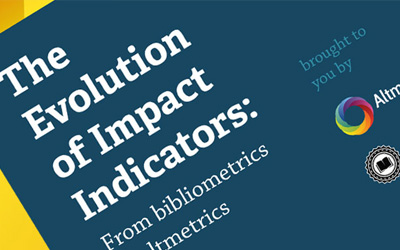
In the increasingly digital-first and open access (OA) research landscape, there’s no question that offering an optimal author experience (AX) should be central to all journal development strategies, regardless of discipline. Making peer review and publishing processes intuitive for authors and giving them the support they need is essential to stay competitive and get more quality submissions.
Many are weighing in on ways to better the author experience from the editor and publisher perspective. But what’s the opinion of actual scholars? We decided to survey the Scholastica author community to find out! We asked authors:
What’s the #1 way you think scholarly journals can improve their author experience?
In this blog post, we share categorized survey responses.
Many thanks to all of the authors who took the time to share their thoughts!
Simplify the submission process as much as possible
“Remove redundancies: I should not need to submit a title page in a specific format that contains all the information that was asked on the form I had to input manually. I should not need to submit a separate cover letter. It’s not 1970 where I am physically mailing a copy of my submission to a journal. The online portal has all the relevant information. After completing it, the only files I should have to upload are the manuscript and related documents (e.g., appendices).” — anonymous author
“#1 Please drop word lengths that include references. More than once, I’ve referenced fewer works than I wanted to to stay within a joint word limit. #2 Please make sure to be consistent in the requirements. More than once, I found slight contradictions in descriptions of the submission-related requirements between the ‘Aims & Scope’ sections, the journal homepage, other ‘Instructions for authors,’ and the information conveyed in the submission system. #3 Mainstream ‘your manuscript your way’ for the first submission round. Stop expecting authors to format the manuscript for your journal for the first submission. #4 Please drop the requirements to suggest reviewers. Recently, I was required to provide six(!) potential reviewers. Yes, I get that there are too many authors, too many journals, too few reviewers, etc. But there must be another way than me suggesting that many potential reviewers.” — anonymous author
“Make sure your author guidelines on your website are up to date with instructions within the submission platform.” — Dustin Grabsch, SMU
“Adopt the Your Paper Your Way model where the first submission is quick. You upload a PDF of your paper in a reasonable format. You do NOT fill out ten pages of Manuscript Central. You do NOT reformat your article to this journal’s one-of-a-kind requirements. If necessary, you do that AFTER acceptance.” — Jason Jeffrey Jones, Stony Brook University
Answer author FAQs upfront
“Journals should make the following information available at the top of their ‘For Authors’ page: Word length and referencing style, explicitly state APC or No APC (if OA), issue frequency per year, then scope/aims. I’ve spent hours trawling wordy journal home pages only to find one of these things is a deal breaker for me. I should have been able to see in the first two seconds.” — anonymous author
“Journals should prioritize attracting and retaining authors by providing a straightforward, supportive, and positive end-to-end publishing experience. This includes helping authors navigate the submission process, interpreting peer review comments, and supporting non-native English speaking authors. Journals can better support ESL authors by helping them navigate manuscript preparation and peer review, and by advocating for policy reform to provide more access to global research.“ — David Ming
“Providing access to support resources, such as workshops or guides, to help authors better understand the expectations and standards of academic journals could be a valuable enhancement to the author experience.” — Uriel S
Provide more (and prompter) submission status updates
First, a quick note: We received SO many survey responses around the desire for journals to send frequent and timely submission status emails (e.g., notification of receipt, updates when submissions enter the next review stage, FYIs when delays occur). Below is a selection of feedback that best encapsulates respondent sentiments overall.
“An immediate response when someone submits — I submitted an article and haven’t heard anything in two weeks.” — anonymous author
“Better communication. First, the journal should let the author know when the article has gone out for review and how long they anticipate it will take until the author receives word of acceptance or rejection. Second, the journal should contact the reviewer if they are late with the review and inform the author of this.” — Helen A. Berger, Brandeis University
“I think all academics know that it is potentially a long process from submission to decision, but a periodic (e.g., monthly) email from an editor or assistant editor to reassure you that the article is still in the queue or whether it is in the hands of reviewers or an R&R pile, would be incredibly helpful.” — Shaun James Russell, The Ohio State University
“When there is a delay, the author should be made aware of the reason(s) for the delay. The personnel in charge of responding to emails should do their best to respond to queries from authors.” — anonymous author
Speed up time to a first manuscript decision
“Timely reviews. For one journal our team submitted to, the initial review took more than seven months. There are so many problems (e.g., stale data, moot topic, delayed publishing) with an initial review taking seven months.“ — anonymous author
“Some journals take months to get decisions back to authors, which can result in aging data and make it difficult to submit to other journals. Also, there are often too many conflicting comments from reviewers. For example, one loves the article, while another harshly criticizes it. These instances are confusing and frustrating for authors.“ — anonymous author
“Peer review takes far too long: I would love to see stats, but in my recent experience, six months is common (and not the longest). It’s gotten significantly worse than when I first entered academia in 1999 and creates problems for various career milestones, including grant applications and promotions. I suspect it takes so long because academics review papers on a volunteer basis, with no reward other than doing something for the good of the community. I propose that journals pay grant money for each paper reviewed. It would not have to be much: perhaps £100/paper would be sufficient.
The switch from volunteer to paid time for reviewers may seem a big change, but I believe the current system is broken and will lead to journals becoming less and less relevant. After all, the content of most papers is published on arXiv at the same time it is submitted to the journals, so a failure of the journals to accept material for publication in a timely manner means that academics will not look to them to find the latest research.” — Daniel Collins, University of Bristol
Advocate for authors during peer review
“It’s hard to get reviewers now, I know. But if you get one and go through the process and the review is obviously wrong, the editors should be empowered to ignore it. The idea that double-blind peer review is necessarily objective is - pretty silly.” — anonymous author
“Editors paying attention to referee reports and rejecting inaccurate ones. Sometimes months of hard work and interesting results are wasted by superficial or simply wrong reports.” — anonymous author
“When two or more reviews come back and contradict each other, the editors should acknowledge this and make some suggestions of how the author might handle it. None of us can simultaneously shorten, lengthen, and leave out the same section.” — Helen A. Berger, Brandeis University
“Increased standardization of the quality of referee responses: Editors should look at each referee report and decide if it meets some acceptable quality level. I know it’s hard to find referees, but the one thing that separates journals from the arXiv is refereeing. I also feel that high-quality referees need to be rewarded in some way. “ — Salman Habib, Argonne National Laboratory
Provide actionable feedback in decision letters
“I believe that journals can improve experiences for authors by providing constructive feedback in a timely fashion. I have found that some journals are quite opaque in their editorial evaluation of journal articles, and reviews are sometimes more cryptic than helpful. I realize that the quality of reviews is often out of the journal’s control. But it would help authors to receive specific feedback from editors in cases where reviewer feedback is not entirely clear.“ — anonymous author
“Instead of denying submissions based on layout or minor issues, writers should be given more constructive feedback that will enable them to make necessary changes and be empowered to resubmit. When a journal is denied based on these things, it makes someone who isn’t an ordinary scholar feel discouraged.” — Joshua D. Glawson
“Make a template for authors to use for R&Rs.“ — anonymous author
Support research discoverability and impact assessment
“Journals should make efforts to ensure that research published in their journals is easily discoverable by providing appropriate indexing and promoting open access.” — David Ming
“Enhance author visibility through such tactics as providing formatted and branded copies of articles to share with colleagues, websites that include ‘searchability’ of individual articles with appropriate keywords, and active endorsement of top articles among prize competitions and potential funders, all of which can be done in a way that simultaneously promotes the journal.“ — Christopher Reilly
“I recommend journals provide web metrics around the uptake of work, such as tracking the number of article views, downloads, and citations. Doing so can help authors have measures to track the extent of their article reach and have documentation for getting a promotion at work or recognition. For example, the Journal of Participatory Research Methods is an open access journal that provides web stats.” — Dr. Connie Kim Yen Nguyen-Truong, Washington State University
Many thanks, again, to all of the scholars who contributed to this blog post! We invite you to join the conversation by sharing questions and additional insights on ways to improve AX in the blog comments below and on social media. You can find Scholastica on LinkedIn, X (formerly Twitter), and Facebook.








